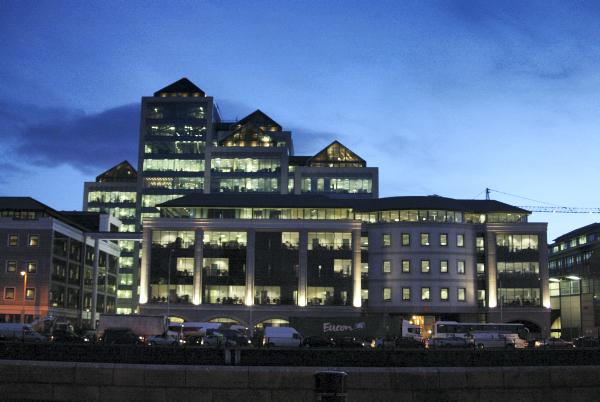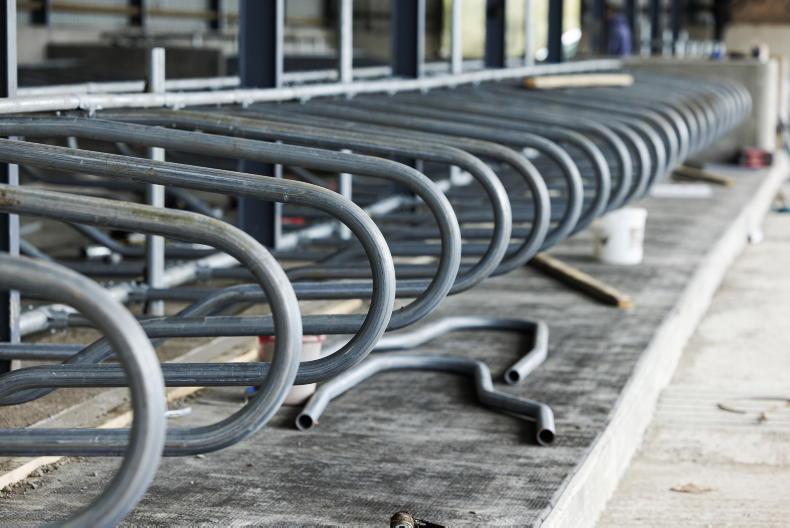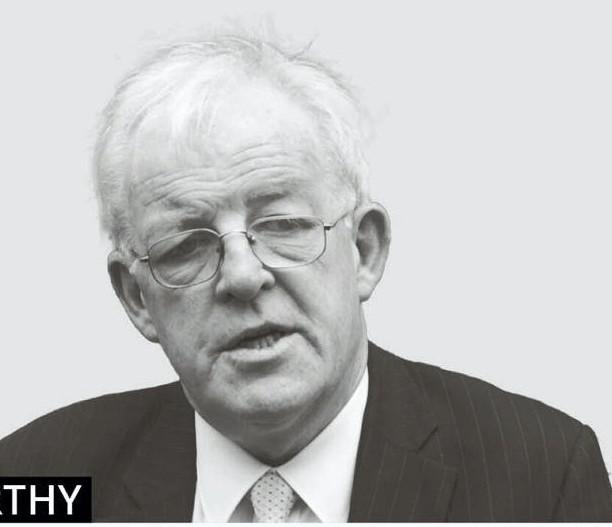Taxpayers get angry when they find themselves picking up the tab for bank failures. There has been anger in many countries, but it has been especially pronounced in Ireland and the reason is straightforward.
The tab has been enormous and it contributed to the national insolvency of November 2010. State debt, inflated by the costs of rescuing bank creditors, had risen to unsustainable levels and the country was forced into an EU/IMF emergency lending programme. That programme ended in December last but the enormous debts and the debt service burden for taxpayers remains.
For the past three-and-a-half years, there has been a march every Sunday in the north Cork village of Ballyhea in protest against the imposition of the cost of bank loan losses on Irish taxpayers. These losses are likely to reach €120bn, or possibly even more when the final bill is totted up.
About half of these costs have been assumed by the Exchequer, where they constitute almost one-third of Ireland’s total national debt. The rest of the losses have been borne by shareholders in the Irish banks, including foreign shareholders, and by some of the junior (subordinated) bondholders.
Senior bondholders, although unsecured, and depositors (including wholesale depositors) have been spared, courtesy of the Irish Government’s retrospective blanket guarantee, even though they enjoyed no advance guarantee of protection and had paid no deposit insurance fees.
Financial crashes invariably result in political decisions about the allocation of losses. Shareholders cannot really complain. They were volunteers in for the upside and shares go down as well as up. Taxpayers were bystanders and have suffered enormous losses – collateral damage from mistakes made by banks, regulators and the Government.
Wholesale depositors and unsecured senior bondholders have been remarkably lucky beneficiaries of the September 2008 decision to guarantee virtually all the liabilities of the Irish banks in the mistaken belief that they were solvent. The Ballyhea protesters have every right to feel aggrieved.
Last Friday, some of them met with Central Bank governor Patrick Honohan. They asked that he help to arrange a meeting with the European Central Bank, which played a controversial and not exactly transparent role in the bail-in of Irish taxpayers.
On two distinct occasions, in the spring of 2010 when the late Brian Lenihan was Minister for Finance, and later in April 2011 when Michael Noonan had succeeded him in that post, the ECB placed pressure on the Irish Government to pay the unsecured bondholders in full. It appears that threats were made that ECB provision of liquidity to the Irish banks would be withdrawn unless the taxpayer bail-in proceeded.
On the second occasion, the ill-advised guarantee had expired, but even on the first it had been overtaken by events and the sovereign Government was entitled to decide who got paid and who did not. The circumstances surrounding these events remain shrouded in secrecy, since neither the Irish Department of Finance nor the ECB have agreed to release documents and records of communications.
The governor, according to The Irish Times, “reluctantly agreed to write to the governing council about the group’s request”, but he declined to recommend it because “he did not want to use up the remaining credit he had with the governing council”. A meeting with the ECB governing council for the Ballyhea group would probably have resulted in more stonewalling from the ECB, so they should perhaps feel relieved that they have avoided the expense of a pointless trip to Frankfurt.
The governor’s position is understandable. Ireland has unfinished business with the ECB under a number of headings and he needs to weigh the costs and benefits of any actions he takes. One important issue is the willingness of the ECB to deal fairly with the cost-reduction for Ireland which arose from the deal on promissory notes last year.
Without getting technical, the ECB has discretion to raise the cost of Ireland’s debt financing by forcing the Government to substitute more expensive market funds for the cheaper ECB financing which arose as a result of the promissory note deal.
How an unelected and unaccountable Euro-quango came to enjoy such arbitrary powers over a member state is a fair question, but hardly the governor’s immediate concern.
It has never been clear that the actions of the ECB in 2010 and 2011 were within its powers under the ECB statute.
Indeed, the European leaders have since agreed that any banks that get into trouble in the future should not expect a taxpayer bail-in to save their creditors. So the costs imposed by ECB actions on Ireland will not be imposed, or at least not to the same extent, in the future.
The Government still has the option to seek clarification of the ECB’s legal powers at the European Court of Justice.









SHARING OPTIONS